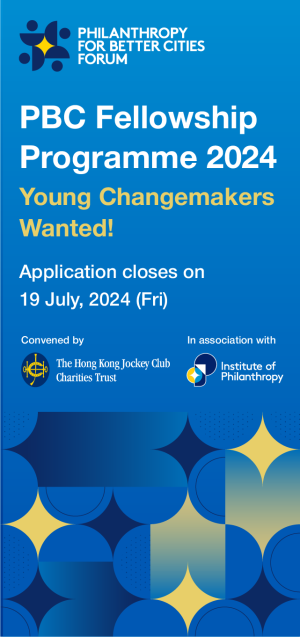With money comes power. It’s an age-old saying, and no matter what type of foundation you are, power dynamics between relationships are an ever-present element.
This is an issue the philanthropic sector as a whole needs to be aware of. But the European funds that work with systemic change across Europe must carry a certain attention to power imbalances. The Bikuben Foundation is part of a field that has realized that some of the complex and persistent challenges we face as a society call for breaking new ground and changing systems.
For a foundation to succeed in this, one must be able to bring together people and organizations across different sectors, disciplines, and positions of power. Alliances and collaborations must be created, where actors join forces to mobilize, facilitate, gather knowledge, involve, build bridges, jointly creating new solutions. We must experiment, learn and share our insights. In such work, foundations form closer relationships with their partners than with donations alone. But how does the power affect relationships within a collaboration? Can equal partnerships exist if one part facilitates the economy?
This is a topic that is of great concern to us at the Bikuben Foundation. That is why we commissioned an external survey among our partners and stakeholders, who via anonymous feedback were able to give their honest opinions. And although there is fundamental support for our strategy of being a system-changing foundation and our role as active partaking development partners, we learned that we can be both dominant and demanding to work with.
This is not exactly what you wish for.
It is not fruitful for collaborations to sit at the head of the table surrounded by partners who don’t dare speak their mind. Without honesty, collaborations are unproductive, unequal, and we end up working in a fabricated reality. As a result, we will stray further away from solving the problems we try to.
If we are to succeed in creating a sustainable collaborative working environment, we need to pay extra attention to the power asymmetry – and take greater responsibility for creating equal and open dialogue, where everyone is given space to express their honest opinion. How do we succeed with this task?
There are several aspects that can affect this – such as how we structure processes, involve people and make decisions – but here are a few notable things I want to highlight.
First, reducing power asymmetry requires strong interpersonal and relational skills. Therefore, it is crucial to have a team of employees who are adept at engaging in dialogues, creating safe spaces of mutual trust with room to talk openly – also about the power structures in the collaboration. We as foundations are in a position where we must take responsibility and be the one who starts that conversation. It should happen continuously and with an awareness that the difficult conversations hardly can be solved in one fell swoop.
There is a need to work in-depth with how foundations engage in relationships with others. At the Bikuben Foundation, we have taken the next step towards breaking down ordinary hierarchies by initiating a community with 20 other organizations and people who all share the mission of creating positive change and transformation in society. We need a wealth of perspectives if we are to succeed. By sharing the same address we build everyday relationships that enable us to work across disciplines, interests and positions of power.
Another tool is time. By committing to a much longer period of time, we can ensure dedication, contributing to solutions – even when things get complicated. The Bikuben Foundation has built several partnerships with a 10-year term or more. We believe this can help to create assurance in the partnerships, creating spaces for honest conversation.
Collaborations with system-changing foundations are demanding in terms of time, complexity and adaptability. It is important to focus on aligning expectations about what is required of each partner to enter collaborations and, as a foundation, enabling partners – regardless of size – to participate on equal footing.
The ambition to be a catalyst for systemic change places demands on partners we are collaboration with – just as it places demands on the foundations themselves. If we are to succeed in changing systems and structures in our societies, we must reflect and acknowledge the role we play in maintaining old structures and power imbalances. With this in mind, I openly share the criticisms we have received. I hope that it will become much more legitimate to talk about structural power. We must dare to talk openly about it and the barriers it entails, preventing lasting systemic changes.
This is a first step along the way. The next crucial steps are translating it into new actions that our partners can feel.
Sine Egede Eskesen is the Chief Visionary Officer (CVO) at the Bikuben Foundation





Comments (0)